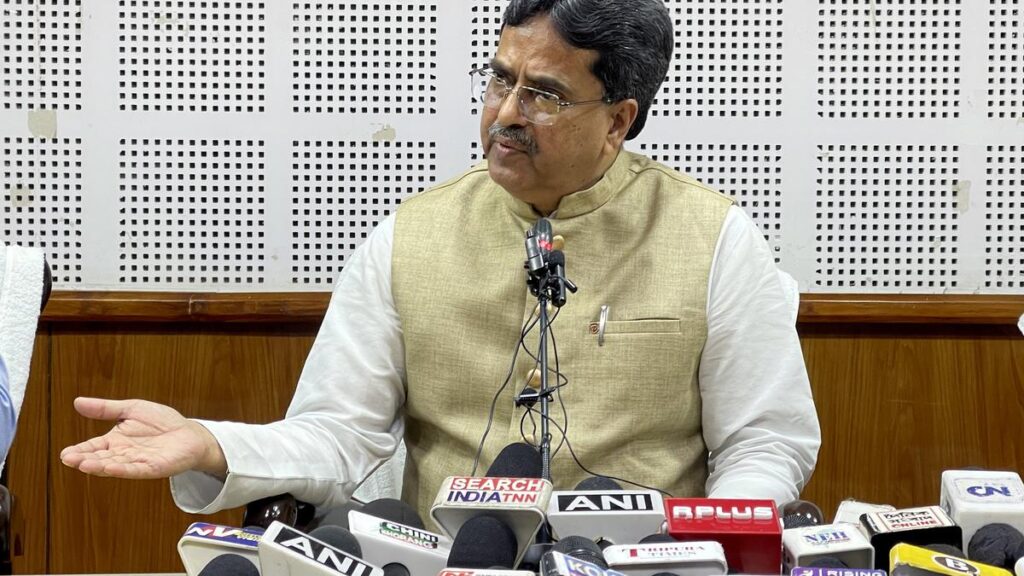In Tripura, a significant political and administrative controversy has erupted over proposed amendments to the Tripura State Medical Council (TSMC). The state government recently introduced a bill to alter the structure and operational guidelines of the council, granting the government more authority to nominate officials to key positions. This move has sparked a wave of criticism from medical professionals, opposition parties, and civil society groups, who argue that these changes could undermine the autonomy and integrity of the council.
The Proposed Amendments
The proposed legislation seeks to give the Tripura government direct control over the appointment of senior officials to the TSMC. The council, which regulates medical education and professional ethics within the state, has traditionally functioned as an independent body with minimal political interference. If passed, the bill would enable the government to nominate members to positions such as the president, secretary, and other executive roles within the council. Proponents of the bill argue that this change is necessary to streamline administration and enhance accountability.
However, critics have raised concerns that these amendments could pave the way for excessive political interference in the medical council’s functioning. They fear that decisions regarding licensing, regulation, and ethical oversight of medical professionals may become influenced by political agendas, rather than being guided by expertise and impartiality.
Opposition and Protests
The proposed changes have faced stiff resistance from multiple quarters. The Indian Medical Association (IMA), along with local healthcare organizations, has strongly opposed the amendments, arguing that the autonomy of medical councils is critical for ensuring ethical and unbiased decision-making in the healthcare sector.
A senior doctor in Agartala stated, “Medical councils are not meant to function as political tools. Their independence is vital for safeguarding the interests of patients and maintaining the credibility of the profession.”
In response to the government’s proposal, the IMA has announced plans for statewide protests. Healthcare professionals across Tripura are organizing rallies and submitting petitions to the state administration, urging them to reconsider the amendments. The IMA has also threatened to escalate the protests to a nationwide level if the bill is passed without addressing their concerns.
Political Implications
Opposition parties in Tripura have also seized upon the controversy to criticize the ruling government. The Communist Party of India (Marxist) and the Congress Party have accused the Bharatiya Janata Party (BJP)-led state government of trying to erode democratic institutions for political gain. They argue that the proposed changes are part of a broader trend of centralizing power and curbing institutional independence.
Leaders of the opposition have highlighted the risks of politicizing medical governance, particularly in a state like Tripura, where healthcare infrastructure is still developing. They argue that instead of focusing on structural changes in the medical council, the government should prioritize addressing pressing issues such as the shortage of doctors, outdated medical facilities, and limited access to healthcare in rural areas.
Government’s Defense
The Tripura government has defended the proposed amendments, asserting that the changes are aimed at improving efficiency and ensuring better governance within the TSMC. A government spokesperson stated, “These reforms will help us address operational challenges and bring about greater accountability in the functioning of the council.”
The government has also pointed out that similar models exist in other states, where governments play a more active role in the functioning of medical councils. However, critics argue that Tripura’s unique challenges—such as its remote location and relatively small healthcare workforce—demand a more nuanced approach.
Broader Implications for Healthcare
The controversy in Tripura is not an isolated case but part of a larger debate across India about the balance between government oversight and institutional autonomy in the healthcare sector. While accountability is essential, excessive political control can compromise the independence of bodies like medical councils, potentially affecting the quality of care, professional standards, and public trust in the system.
For a state like Tripura, which has made strides in improving healthcare access but still struggles with resource constraints, this controversy risks diverting attention from critical issues that require urgent action. The outcome of this debate could have far-reaching implications, not only for Tripura’s healthcare system but also for broader policy discussions on medical governance in India.
The proposed amendments to the Tripura State Medical Council have ignited a contentious debate about governance, autonomy, and the role of political influence in healthcare. As protests escalate and political opposition intensifies, the state government faces mounting pressure to address the concerns of medical professionals and other stakeholders. The resolution of this issue will serve as a test of the government’s ability to balance reform with respect for institutional independence, setting a precedent for other states grappling with similar challenges.

